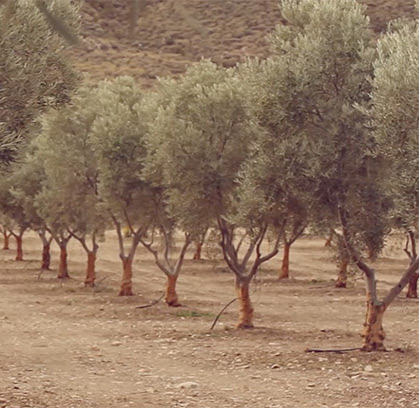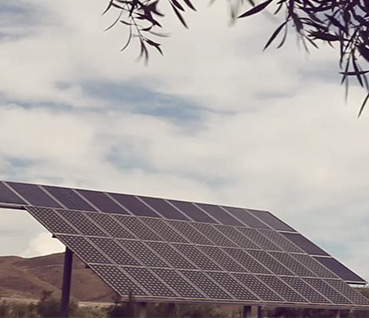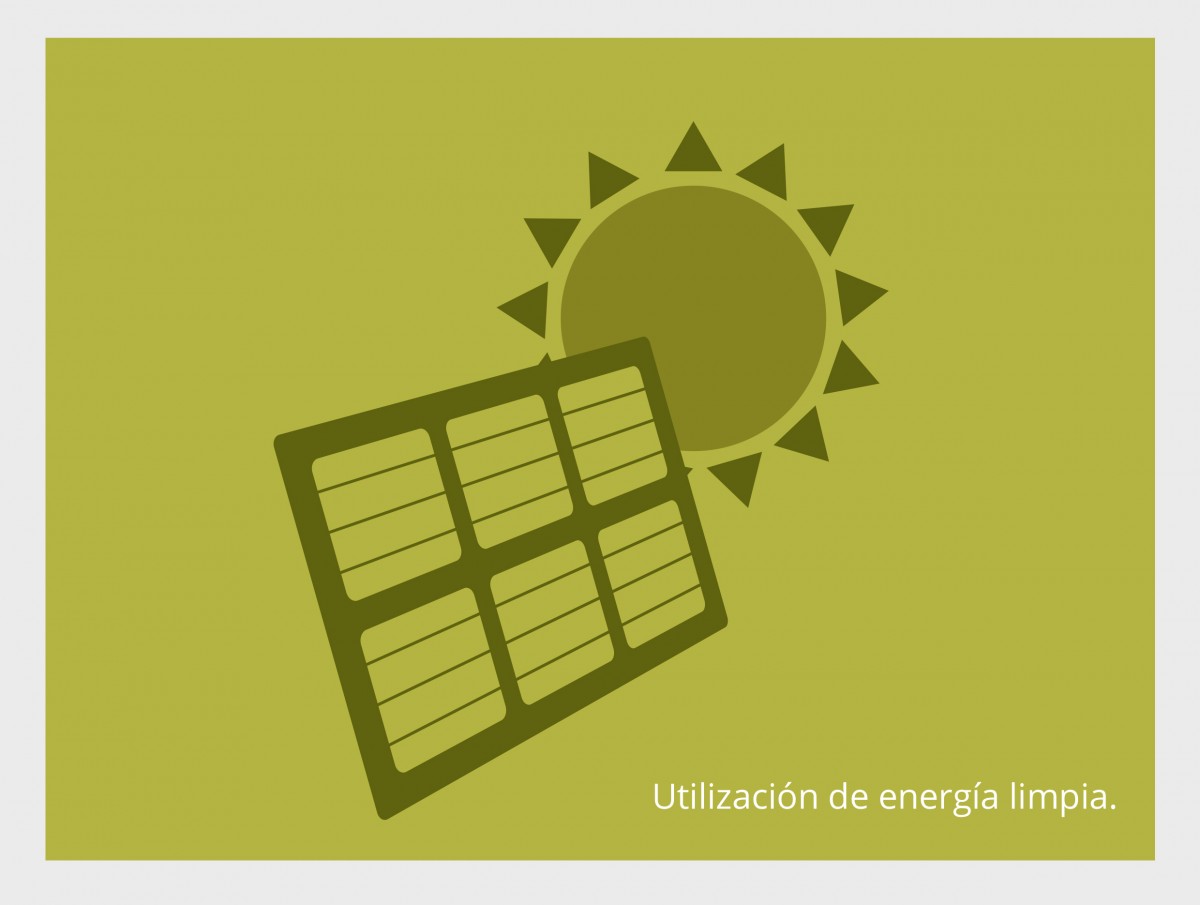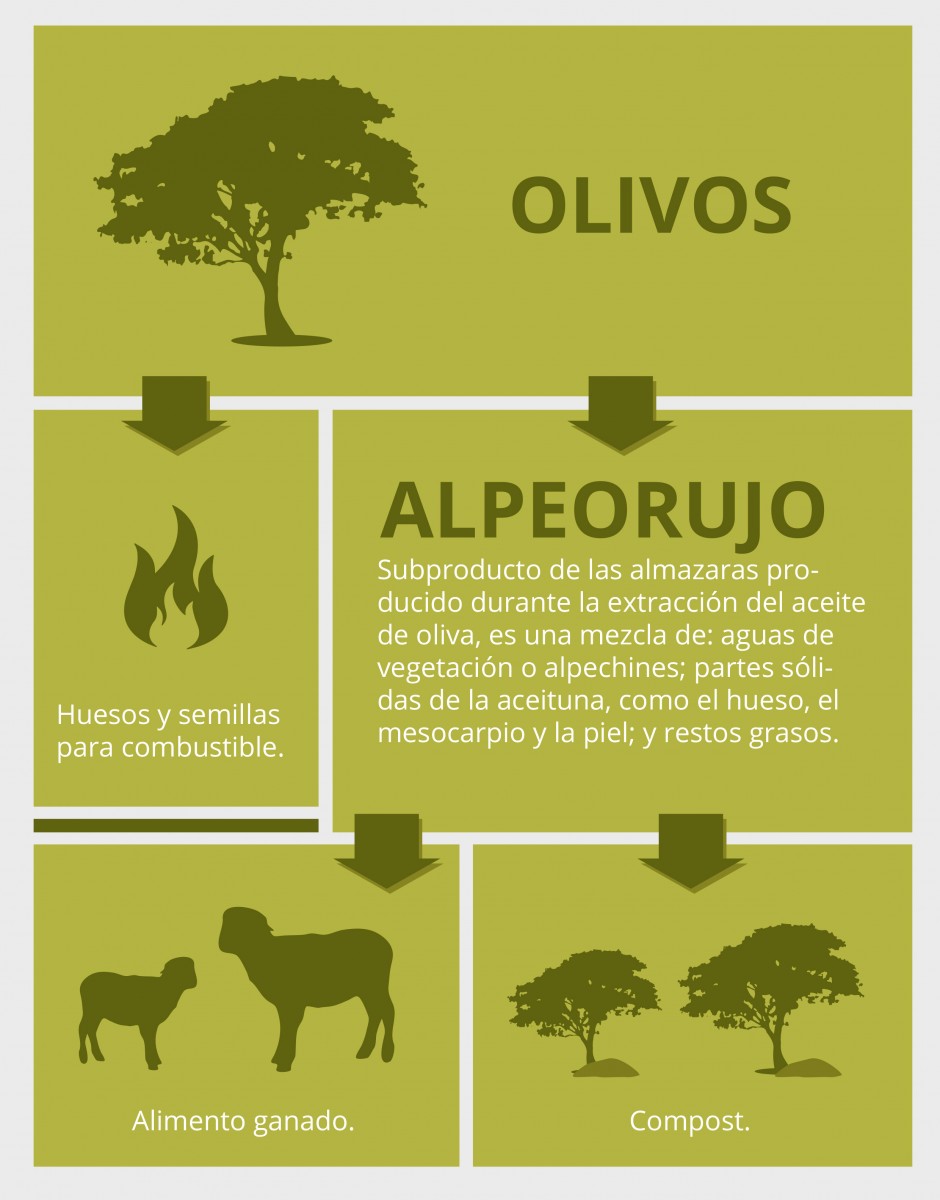

Organic Farming
It is afarming system whose fundamental objective is the obtaining of foods of maximum quality respecting the environment and conserving the fertility of the soil, trying to optimize the natural cycles and resources, without the use of chemical products. This is how we farm our groves where we obtain the best organic extra virgin olive oil since 1999.
An adequate management of the olive grove needs care to obtain a correct fertility, production and maintenance of the environment, obtaining also a product free of chemistry.
The three most common environmental degradation processes in conventional olive groves are:
- Water erosion (rain).
- Physical and biological degradation (over-harvesting, low input of organic matter to the soil).
- Use of pesticides and chemical fertilizers.
To improve the soil of our organic olive groves we take the following measures:
- Levelling, ditches or infiltration ditches.
- Terraces.
- Cover crops that are mowed, use of inert cover of rests after pruning and addition of organic matter as compost.
- The treatment of weeds is similar to that of the vegetal covers, securing them and we also integrate the equine and ovine cattle to control them in time of water competition.
For the management of pests and diseases of the olive grove (fly, moth, tuberculosis, etc.),
- First, we rely on natural control factors as preventive measures.
- A good level of fertility in the soil.
- Proper use of water.
- Introduction of plants that serve as a refuge for natural enemies.
- Performing other beneficial cultural practices (pruning, removal of damaged parts, etc.).
Once the pest or disease is detected, only if its damage is of importance for the harvest, it is treated with the products certified and authorized for this purpose.
SUSTAINABILITY
All the residual material of the process of obtaining the olive oil (Alpeorujo = Pomace), is reused and integrated on the production cycle as by-products:
The pits of the olives are usedas biomass for combustion in the mill itself to obtain heating for the whole facilities; the pulp once dried is used as part of sheep and goat's feed and partly for its composting and production of natural fertilizer that is used on the estates once it’s mature. Closing the cycle of matter
In our mill and olive grove 100% of the energy is of photovoltaic origin and therefore renewable. Closing the energy cycle with surpluses sold to the grid.
This way, not only to obtain an organic product but also the oil mill itself is self-sufficient, since all the waste is reused by reincorporating it into the production process and the pollution is reduced, therefore more sustainable.

